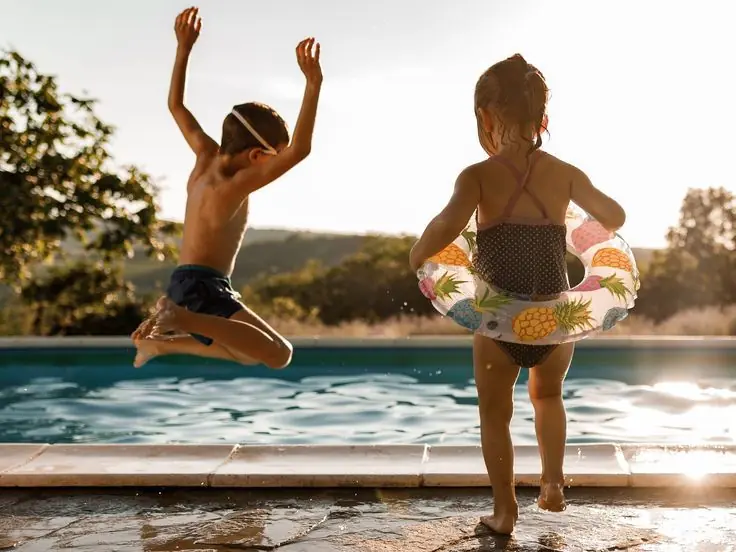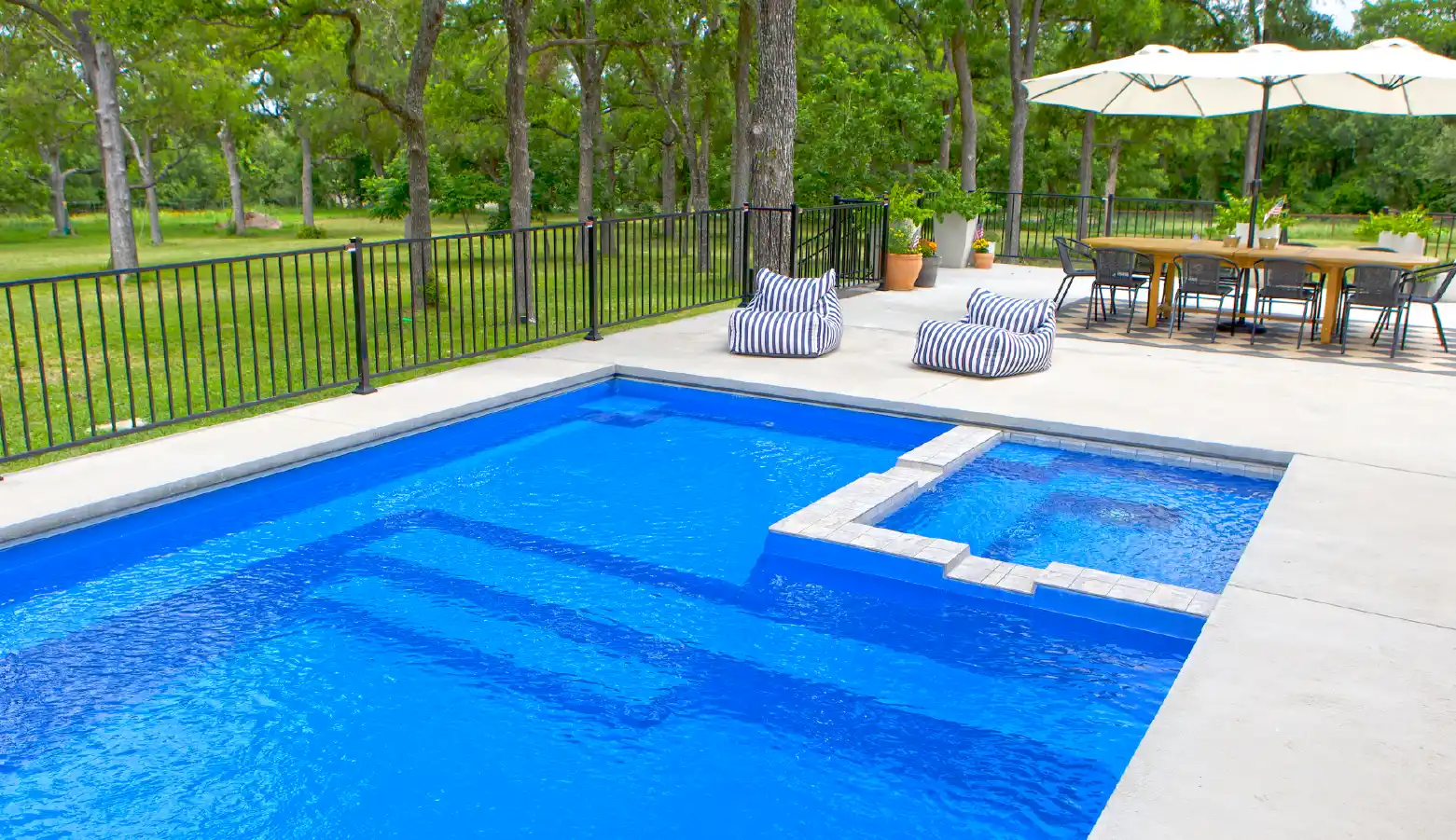1. Never Leave Children Unattended Near Water
The foremost of our pool safety tips is to never leave children alone in or near the water, even for a second. Drowning can happen quickly and silently, and it can occur in any depth of water. Always designate a responsible adult to always supervise children and pets. Better yet, install barriers like pool fences with self-locking gates to create an extra layer of protection.
2. Learn CPR and Water Safety Skills
In the event of an emergency, quick action can save a life. Learning CPR and basic water rescue skills can make all the difference. CPR certification courses are widely available, and many organizations offer classes for parents, caregivers, and pool staff. Having these skills can help you respond effectively if an incident occurs.
3. Install Pool Barriers and Alarms
To reduce the risk of accidental drowning, ensure your pool area is properly fenced with a minimum four-foot or higher barrier. The fence should have no footholds or handrails that could help a child climb over. Pool alarms, both for the gate and the water, can also provide an added layer of security by alerting you if someone enters the pool area.

4. Set Pool Rules and Stick to Them
Establishing clear and consistent rules for everyone using the pool is essential. This includes no running around the pool, no diving in shallow water, and always using flotation devices for young or non-swimmers. Educating children and guests about pool safety before they jump in will help reinforce good habits and prevent risky behavior.
5. Keep Pool Covers Secure
When your pool is not in use, always cover it with a pool cover that is strong enough to support weight, in case of accidental falls. It’s essential to make sure the cover is properly secured and can’t be easily removed or tampered with. Pool covers are a great way to keep debris out and prevent unsupervised access to the water.
6. Never Swim Alone
Even if you’re a strong swimmer, it’s important never to swim alone. Swimming with a buddy ensures there’s someone around to help if you get into trouble. This applies to both children and adults, and it’s always a good idea to have a designated “buddy” system when at the pool.
7. Avoid Alcohol While Swimming
Consuming alcohol can impair judgment, balance, and coordination, increasing the risk of accidents in or around the pool. Set a no-drinking rule for swimmers, especially for those who may be at risk of slipping, diving, or losing control in the water.
8. Regularly Check Pool Equipment
Routine maintenance is crucial for pool safety. Check all pool equipment regularly, including ladders, diving boards, and any other structures. Make sure they are securely fastened and in good working order. Ensure your pool’s filtration and sanitation systems are running efficiently to keep the water clean and safe for swimming.
9. Keep Glass Away from the Pool Area
Glass containers can be dangerous near the pool. If broken, shards of glass can cause serious injuries, especially when barefoot. Always use non-glass alternatives, such as plastic, stainless steel, or silicone cups and bottles, around the pool. Never have glass containers on the pool deck or by the gates, as they present an added risk to swimmers and guests.
10. Secure Pool Gates
Ensure that all pool gates are self-closing and self-latching. This is particularly important if you have small children or pets. The gate should be locked when the pool is not in use to prevent unsupervised access. It’s a simple yet highly effective way to add an extra layer of protection.
11. Ensure Pets Have Safe Access to the Pool
Just like children, pets should be always supervised around the pool. Install a secure pool fence to prevent unsupervised access and teach your pet how to safely enter and exit the pool using steps or a pet-friendly ramp. Additionally, consider investing in a dog-specific life jacket, especially if your pet is not accustomed to swimming.

Conclusion
Pool safety should always be a top priority, regardless of your experience or the size of the pool. By implementing these key pool safety tips, you can help ensure that your time by the water is both fun and safe for everyone. Remember, when it comes to pool safety, it’s better to be proactive than reactive.

